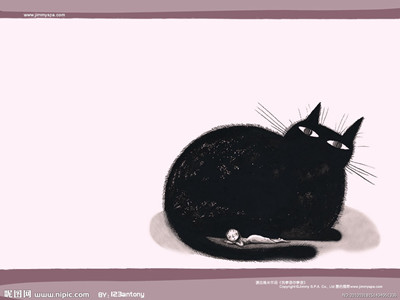
In order to find the most beautiful dialect ever spoken in Italy, they had to reach back in time two hundred years to fourteenth-century Florence. What this congress decided would henceforth be considered proper Italian was the personal language of the great Florentine poet Dante Alighieri. When Dante published his Divine Comedy back in 1321, detailing a visionary progression through Hell, Purgatory and Heaven, he'd shocked the literate world by not writing in Latin. He felt that Latin was a corrupted, elitist language, and that the use of it in serious prose had "turned literature into a harlot" by making universal narrative into something that could only be bought with money, through the privilege of an aristocratic education. Instead, Dante turned back to the streets, picking up the real Florentine language spoken by the residents of his city (who included such luminous contemporaries as Boccaccio and Petrarch) and using that language to tell his tale.
為了找到意大利最美的方言,他們必須回溯到兩百年前,14 世紀的佛羅倫薩。這個集會達成決定:往后被認為是正統(tǒng)意大利語的語言,正是佛羅倫薩大詩人但丁的個人語言。早在1321年,但丁出版《神曲》,詳述穿越地獄、煉獄及天堂的想象過程;其不以拉丁文書寫作的立場,震驚了文學(xué)界。他覺得拉丁文是一種訛誤的精英語言,用之于嚴肅的散文上時,讓普遍的敘述轉(zhuǎn)變成必須經(jīng)由貴族教育特權(quán)才能閱讀,也就是必須用錢才能買得到的東西,“使文學(xué)成為妓女”。但丁轉(zhuǎn)而回到街頭巷尾,采擷他的城市居民們(包括同時代的杰出人物薄伽丘與佩托拉克)所使用的真實的佛羅倫薩語,以這種語言來講述他的故事。
He wrote his masterpiece in what he called dolce stil nuovo, the "sweet new style" of the vernacular, and he shaped that vernacular even as he was writing it, affecting it as personally as Shakespeare would someday affect Elizabethan English. For a group of nationalist intellectuals much later in history to have sat down and decided that Dante's Italian would now be the official language of Italy would be very much as if a group of Oxford dons had sat down one day in the early nineteenth century and decided that—from this point forward—everybody in England was going to speak pure Shakespeare. And it actually worked.
他使用他所稱具有“dolce stil nuovo”(甜蜜新風(fēng)格)特質(zhì)的方言,來書寫他的杰作,而即便在書寫之時,他也在塑造這種方言,親自影響它,如同莎士比亞有朝一日也將影響伊莉莎白時代的英語一般。經(jīng)過漫長的歷史以后,一群民族主義知識分子坐下來決定,讓但丁的意大利語言成為意大利的官方語言,這就像一群牛津研究員在19 世紀初的某一天坐下來決定,從今以后,讓英國每個人說純粹的莎士比亞語。而他們確實辦到了。
The Italian we speak today, therefore, is not Roman or Venetian (though these were the powerful military and merchant cities) nor even really entirely Florentine. Essentially, it is Dantean. No other European language has such an artistic pedigree. And perhaps no language was ever more perfectly ordained to express human emotions than this four-teenth-century Florentine Italian, as embellished by one of Western civilization's greatest poets. Dante wrote his Divine Comedy in terza rima, triple rhyme, a chain of rhymes with each rhyme repeating three times every five lines, giving his pretty Florentine vernacular what scholars call "a cascading rhythm"—a rhythm which still lives in the tumbling, poetic cadences spoken by Italian cabdrivers and butchers and government administrators even today. The last line of the Divine Comedy, in which Dante is faced with the vision of God Himself, is a sentiment that is still easily understandable by anyone familiar with so-called modern Italian. Dante writes that God is not merely a blinding vision of glorious light, but that He is, most of all, l'amor che move il sole e l'altre stelle . . .
因此今日的意大利語,并非羅馬語或威尼斯語(盡管它們是強大的軍事商業(yè)城市),甚至不盡然是佛羅倫薩語。基本上是“但丁語 ”。沒有別的歐洲語言具有如此風(fēng)雅的血統(tǒng)。或許沒有任何語言可以比這個由西方文明的偉大詩人之一加以修飾的14世紀佛羅倫薩意大利語,更天經(jīng)地義地表達出人類的喜怒哀樂。但丁以“三韻體 ”(terza rima)書寫《神曲》,每個韻腳每五行重復(fù)三次的連環(huán)韻詩,賦予他那漂亮的佛羅倫薩方言某種學(xué)者所謂的“層疊韻律”——此種韻律依然存在于今天的意大利計程車司機、屠夫、政府官員所說的抑揚頓挫的聲調(diào)當(dāng)中《神曲 》的最后一行——但丁看見上帝本尊——所表達的感情,任何熟悉所謂現(xiàn)代意大利語的人都能很容易理解。但丁寫道,上帝不僅是令人目眩的光輝景象,最重要的是,他是 “I'amor che move il sole e l'altre stele”……
"The love that moves the sun and the other stars."
“是愛也,動太陽而移群星。”
So it's really no wonder that I want so desperately to learn this language.
Eat, Pray, Love
難怪我這么死命想學(xué)這種語言。











